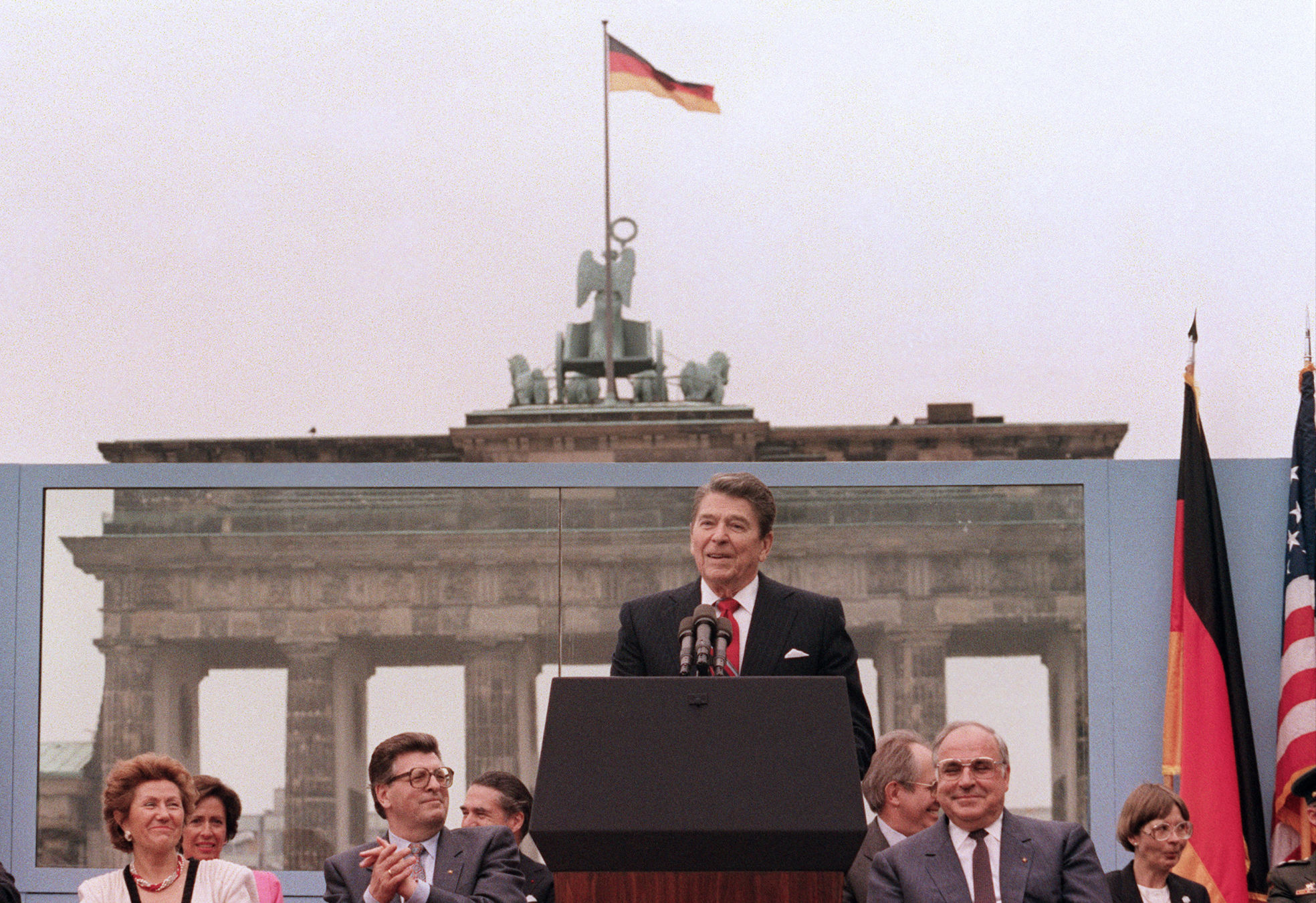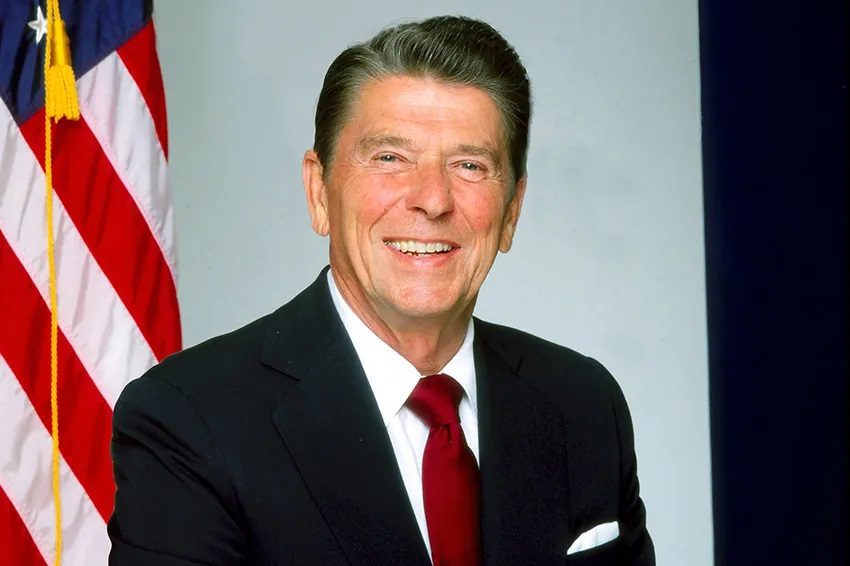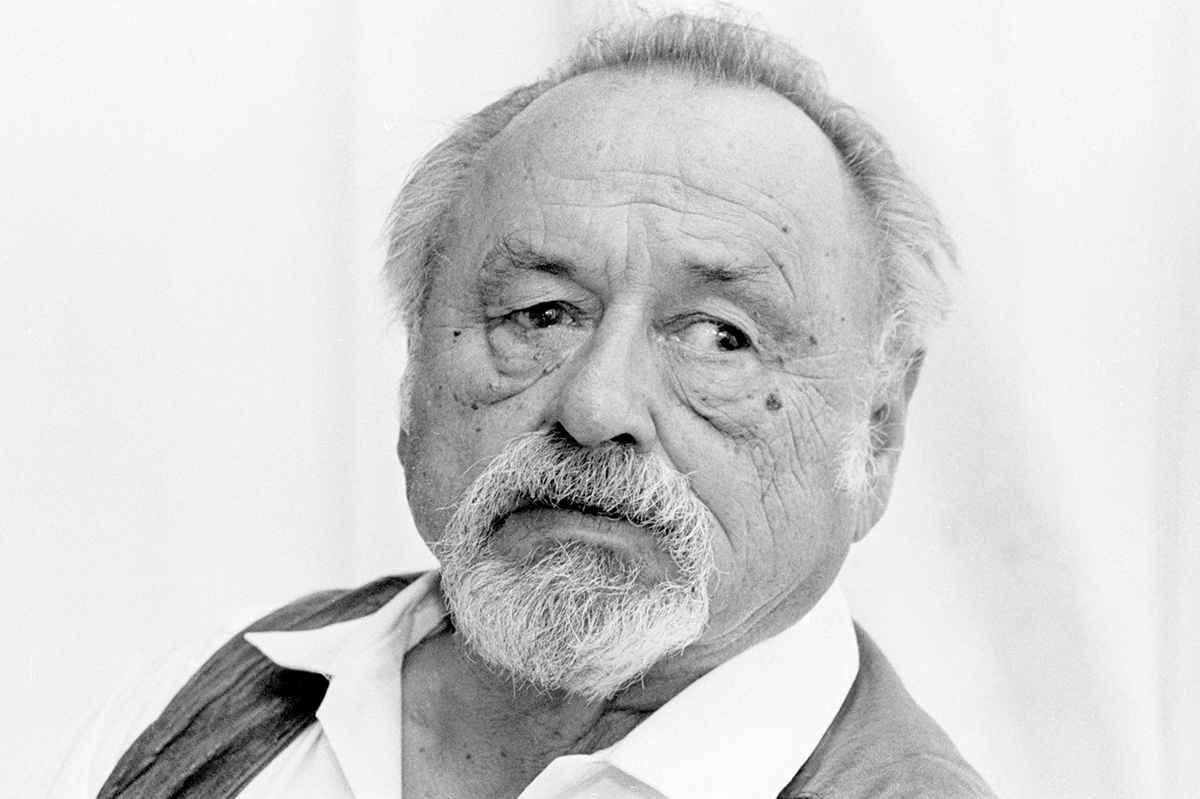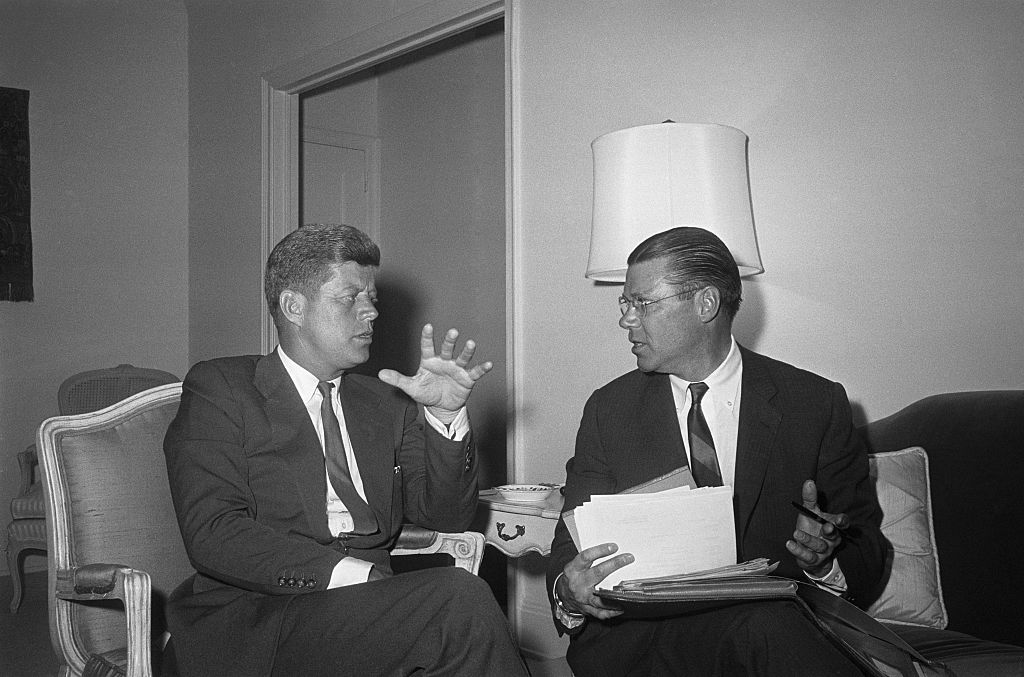The talented military historian Max Boot has published a well-researched life of Ronald Reagan — Reagan: His Life and Legend — that is fundamentally wrong. First the good parts: he has combed through lots of archives finding new information and has interviewed countless people who worked with or knew Reagan. His style also bears the reader effortlessly along. Yet his claim that Reagan was merely a lightweight pragmatist who had little effect on reviving the American economy, resuscitating the country’s self-esteem or winning the Cold War is absurdly revisionist. It says more about the author’s own rejection of the Republican Party than it does about Reagan’s world-historical achievements.
Quite unnecessarily in a biography of someone who left office more than thirty-five years ago, there are seven references to Donald Trump, as Boot attempts to argue that Reaganism made Trumpism possible. But the two men have little in common either personally or politically besides having been entertainers and Trump re-heating Reagan’s slogan of “Make America Great Again.” Reagan believed in free trade, the NATO alliance, giving paths to citizenship for three million immigrants and supporting democracy and human rights all over the world. Comparisons between the Great Communicator and Trump are absurd.
Needless to say, the excitement on the left about this book has been great. “Did Ronald Reagan Pave the Way for Donald Trump?” asked the New York Times, concluding of course that he did. “Max Boot’s Book Deflates the Gipper’s Legacy,” blared the Washington Post, despite the fact that, taken accusation by accusation, it does no such thing. “Reagan left the White House thirty-five years ago,” the paper gloated, “and his influence no longer looms so large in American political life.” Yet which American president, save perhaps Washington, Lincoln and Franklin Roosevelt, has dominated the scene more than a third of a century after their death? — and it is only now that Reagan’s victory in the Cold War is unravelling.
Boot’s list of accusations is so long that one wonders how Reagan could ever have got to the White House in the first place, let alone saved the economy from the stagflation of the 1970s, triumphed in the Cold War through massive rearmament and completed the first back-to-back two-term presidency since Eisenhower. Boot’s Reagan had “a second-class mind” which was “paralyzed by indecision;” he was “a disengaged president,” who merely understood “ordinary white Americans” and was personally responsible for 50,000 people dying from AIDS.
Boot also seems muddled about the way White House politics works. He is critical of Reagan for having “little interest in, or aptitude for, running the federal government” and blames him for “not taking an active part” in crafting any of the legislation that overhauled the US tax system and restructured the Pentagon. But delving into the details of legislation is emphatically not what successful presidents do. The chief executive’s role is to find the right people for that task and give them the necessary political and financial support. Reagan did that triumphantly. He didn’t need to get into the weeds of anti-inflationary monetary policies, for example; he just had to give Paul Volcker of the Federal Reserve the means to see them through.

Similarly, Boot seems unable to join the very few dots between Reagan appealing to Mikhail Gorbachev to “tear down this wall” in his Berlin speech of June 12, 1987 and the moment on November 9, 1989 when the people of Berlin did just that. Boot simply belittles the speech, despite testimony from across Eastern Europe that those words electrified the freedom-loving people of former Iron Curtain countries and encouraged them anew to try to dismantle Russian hegemony.
Instead, Boot gives Gorbachev most of the credit, calling him “an unusually decent and intelligent person,” leaving a little over for (the vastly more deserving) Pope John Paul II. He fails to recognize that Reagan had denounced communism since the 1950s, had refused to embrace détente in the 1970s and, once president, had poured money into an arms race — including such technologies as the Strategic Defense Initiative (“Star Wars”) which the Russians never knew didn’t work — until the USSR cracked under the pressure. America had a 600-vessel navy under Reagan. It was unmatchable hard power that won the Cold War rather than the decency and intelligence of a Russian leader who was finally forced to conclude that Marxism-Leninism couldn’t compete and had effectively collapsed under the weight of its economic contradictions and failings.
Boot is more interested in noting when Reagan invented Lenin quotations (which he did regularly and without apology) than in appreciating how the president undermined Lenin’s life’s work. That was not achieved by a man paralyzed by indecision but by one who had the vision, and employed the bipartisanship, that we need more of in Washington today. One Lenin quote Reagan invented predicted that the Bolsheviks would “take Eastern Europe” and next “organize the hordes of Asia,” which was not a bad summation of what the Soviets achieved between the end of World War Two and their disastrous invasion of Afghanistan.
There is surprising naivety when Boot writes of how, during elections, “the trappings of [Reagan’s] family, displayed in photographs and videos, conveyed the right image, even if they were disassociated from the underlying reality.” You don’t say. Politicians who use happy, smiling photos of their families in election literature are hardly confined to Republicans. Similarly, his concentration on ethical and financial misconduct in the Reagan administration implies that it was unique, rather than found in administrations of both stripes for centuries.
Reagan had a way of making Americans feel optimistic about themselves, their country’s future and their nation’s role in promoting prosperity and democracy globally — and yes, he used jokes and anecdotes to achieve that. So what if in so doing he irritated Boot, who complains about his “disturbingly cavalier attitudes towards factual accuracy?” Reagan was fighting what he justifiably termed an evil empire; he was not applying for a job as fact-checker on the New Yorker.
Boot’s account is simply too partisan to serve as an impartial biography. That, sadly, remains to be written. Reagan was destined to be underestimated in his lifetime, and is still by his biographers — though not in the hearts of freedom-loving people everywhere

























